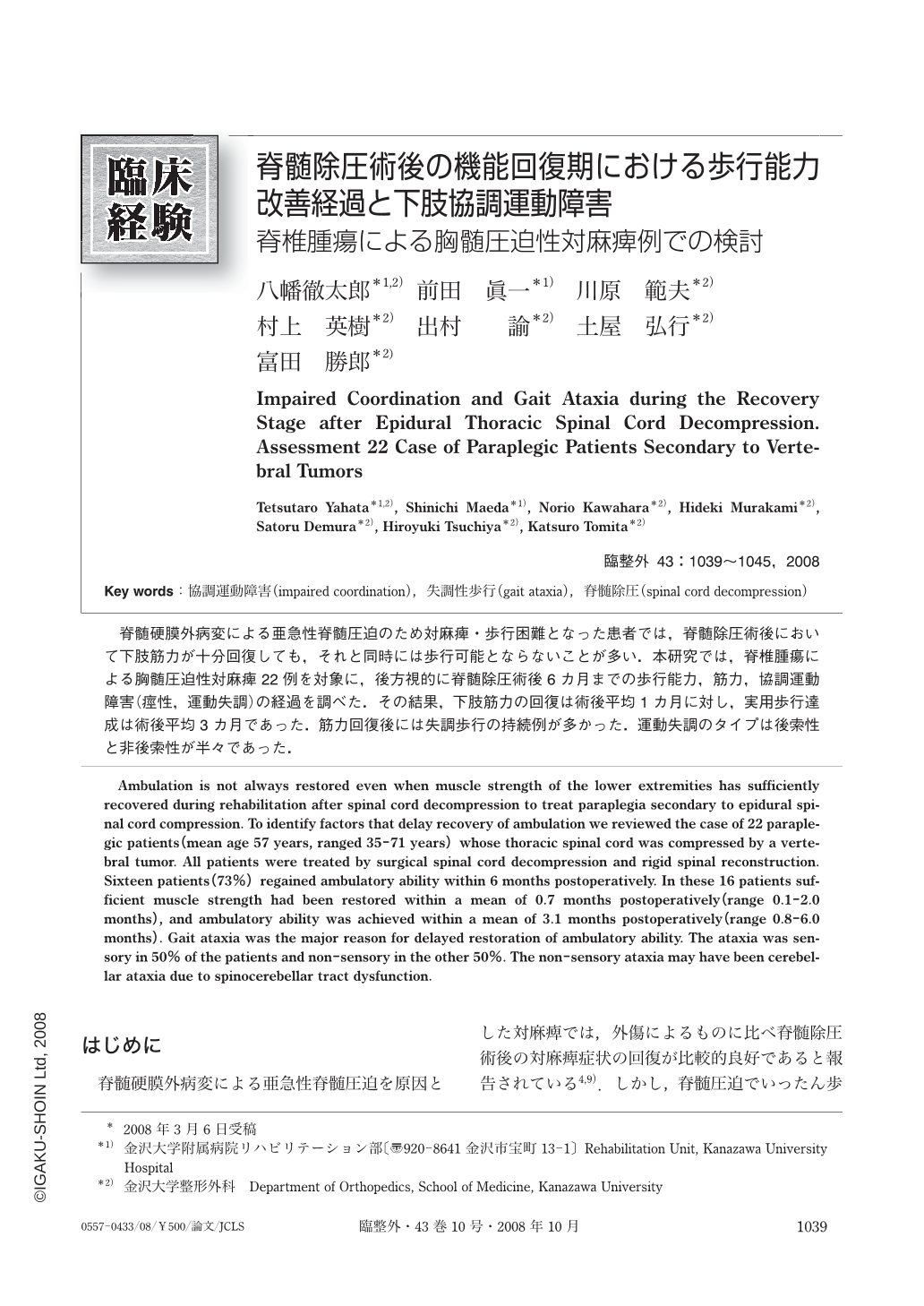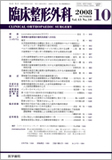Japanese
English
- 有料閲覧
- Abstract 文献概要
- 1ページ目 Look Inside
- 参考文献 Reference
脊髄硬膜外病変による亜急性脊髄圧迫のため対麻痺・歩行困難となった患者では,脊髄除圧術後において下肢筋力が十分回復しても,それと同時には歩行可能とならないことが多い.本研究では,脊椎腫瘍による胸髄圧迫性対麻痺22例を対象に,後方視的に脊髄除圧術後6カ月までの歩行能力,筋力,協調運動障害(痙性,運動失調)の経過を調べた.その結果,下肢筋力の回復は術後平均1カ月に対し,実用歩行達成は術後平均3カ月であった.筋力回復後には失調歩行の持続例が多かった.運動失調のタイプは後索性と非後索性が半々であった.
Ambulation is not always restored even when muscle strength of the lower extremities has sufficiently recovered during rehabilitation after spinal cord decompression to treat paraplegia secondary to epidural spinal cord compression. To identify factors that delay recovery of ambulation we reviewed the case of 22 paraplegic patients (mean age 57 years, ranged 35-71 years) whose thoracic spinal cord was compressed by a vertebral tumor. All patients were treated by surgical spinal cord decompression and rigid spinal reconstruction. Sixteen patients (73%) regained ambulatory ability within 6 months postoperatively. In these 16 patients sufficient muscle strength had been restored within a mean of 0.7 months postoperatively (range 0.1-2.0 months), and ambulatory ability was achieved within a mean of 3.1 months postoperatively (range 0.8-6.0 months). Gait ataxia was the major reason for delayed restoration of ambulatory ability. The ataxia was sensory in 50% of the patients and non-sensory in the other 50%. The non-sensory ataxia may have been cerebellar ataxia due to spinocerebellar tract dysfunction.

Copyright © 2008, Igaku-Shoin Ltd. All rights reserved.


